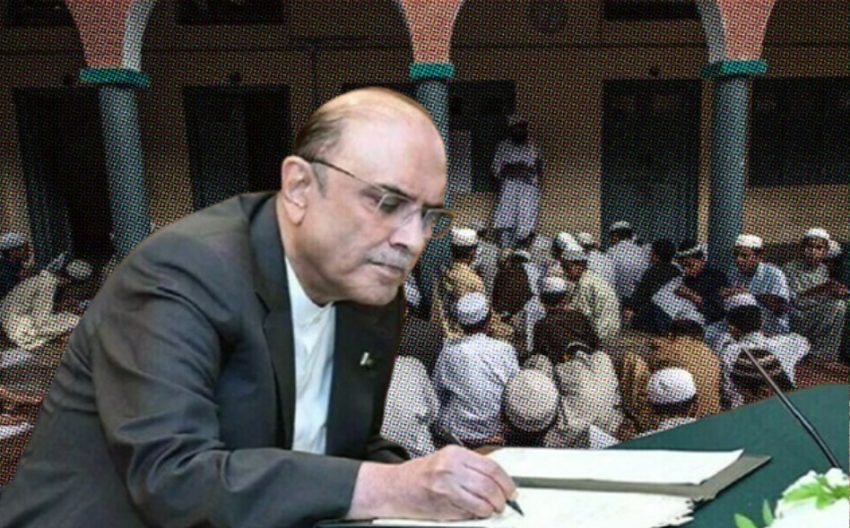ISLAMABAD – President Asif Ali Zardari on Sunday officially gave his assent to contentious madrassa registration bill after prolonged standoff of incumbent authorities with Jamiat Ulema-e-Islam-Fazl (JUI-F).
The bill, aimed at regulating religious schools, sparked considerable debate across the country, with right wing leaders arguing it could infringe upon religious freedoms, while supporters contend it is necessary for ensuring transparency and accountability in madrassas.
The law requires madrassas to register with the government, ensuring they meet certain standards. This move is seen as part of the broader efforts to enhance oversight of educational institutions in Pakistan.
PML-N led alliance government, after facing opposition protests from Pakistan Tehreek-e-Insaf (PTI), was facing hard times from Fazal-ur-Rehman, leader of the religious Jamiat Ulema-e-Islam-Fazl (JUI-F) party, who was pushing for approval of a bill to amend the registration process for religious seminaries.
Madrassa Registration bill was passed alongside controversial 26th amendment in October, to shift seminary oversight back to district officials, removing the Ministry of Education’s control. However, President Zardari raised “technical objections” to the bill, and Prime Minister Shehbaz Sharif’s government has expressed concerns, leading to a heated debate.
The country started regulating seminaries more strictly for national security reasons in recent year and ousted government of Imran Khan brought seminaries under Ministry of Education, introducing reforms such as audits and expanded curricula. JUI-F and allies opposed these reforms. The proposed JUI-F bill would reduce government interference, allowing seminaries with multiple campuses to register as one entity.
President Zardari, PM Shehbaz discuss PTI talks, seminary bill













